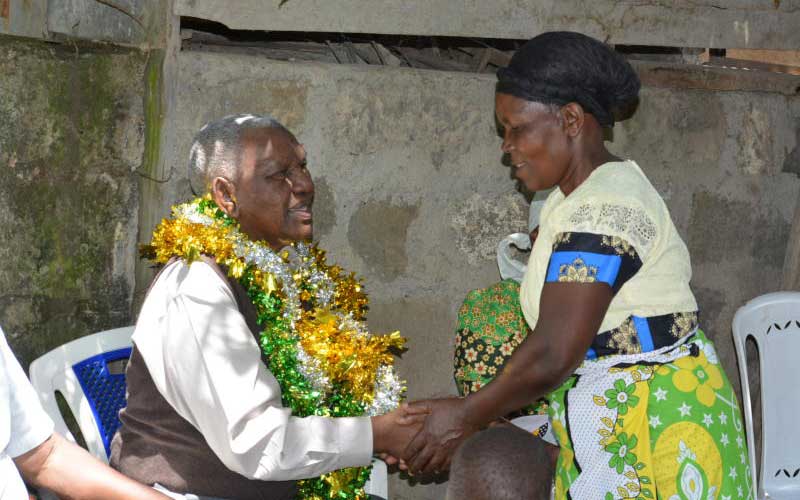×
The Standard e-Paper
Join Thousands Daily

James Mugweru is given a rousing welcome by friends and family to celebrate his return to Kenya from the US after a 47 years. [Kennedy Gachuhi, Standard]
He migrated to the United States of America in search of greener pastures. And after 47 years, James Mugweru returned to Kenya and is delighted to be home.